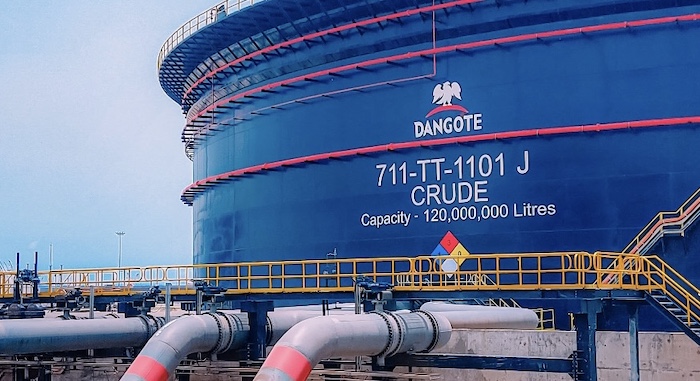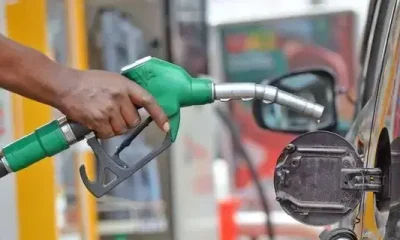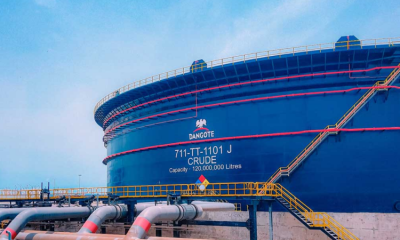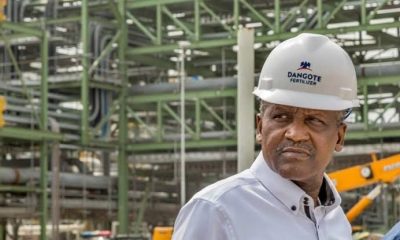
News
Dangote Refinery May Set The Petrol Price

iexclusivenews – In a surprising turn of events, reports suggest that the Nigerian government is considering granting Aliko Dangote refinery the power to set petrol prices.
This development could mark a significant shift in the country’s fuel pricing policy, potentially reshaping the landscape of Nigeria’s oil industry.

According to anonymous officials cited by Bloomberg, the federal government plans to allow Dangote Refinery to determine gasoline prices for petroleum marketers starting next month.
This decision comes at a crucial time when Nigeria, Africa’s largest oil producer, is grappling with fuel scarcity and economic challenges.
For years, Nigeria has relied heavily on imported petrol, subsidizing the cost at a substantial annual expense.

The introduction of Dangote’s refinery in Lagos, which has begun local petrol production, is expected to alleviate the burden of imports on the Nigerian National Petroleum Company Ltd. (NNPC).
Table of Contents
Dangote Refinery: A Game-Changer
This online news media understands that the Dangote Refinery, a massive $19 billion project, has the potential to revolutionize Nigeria’s fuel market.
With a capacity to process 650,000 barrels of crude oil per day, it is poised to become Africa’s largest oil refinery and the world’s biggest single-train facility.
The refinery’s impact on Nigeria’s economy could be substantial. By reducing the country’s reliance on imported fuel, it is expected to save billions in foreign exchange and create thousands of jobs.
Moreover, the facility’s ability to produce various petroleum products, including diesel and jet fuel, could position Nigeria as a major exporter in the region.
Dangote Refinery Role in Pricing
Despite the reports suggesting that Dangote Refinery might set fuel prices, the Dangote Group has recently stated that it cannot influence or set petrol prices from its refinery.
The company emphasized that only the federal government’s regulatory authorities have the power to determine fuel prices.This clarification comes amid speculation about the refinery’s potential impact on Nigeria’s fuel pricing mechanism.
The Dangote Group stated, “The PMS market is strictly regulated, which is known to all oil marketers and stakeholders in the sector, hence we cannot determine, fix, or influence the product price, which falls under the purview of relevant government authorities.”
The company also revealed that the NNPC has not yet begun lifting refined Premium Motor Spirit (PMS) from the Dangote Petroleum Refinery, as the pricing issue remains unresolved.
This situation underscores the complex dynamics at play in Nigeria’s oil sector and the challenges of transitioning to a more market-driven approach to fuel pricing.
What You Should Know
As Nigeria navigates these changes, the role of Dangote Refinery in shaping the country’s energy landscape remains a topic of intense interest and debate.
The coming months will likely provide more clarity on how this new player in the market will interact with existing structures and policies.
For now, Nigerians and industry observers alike are watching closely to see how this potential shift in fuel pricing authority will impact the economy, consumers, and the broader energy sector.
As the situation unfolds, it’s clear that the Dangote Refinery will play a pivotal role in Nigeria’s quest for energy self-sufficiency and economic growth.


























